Remembering a great Prokofievian

Remembering a vivacious force in Prokofiev studies
She did more to make Prokofiev remembered and reassessed than most of the great performers.

She did more to make Prokofiev remembered and reassessed than most of the great performers.
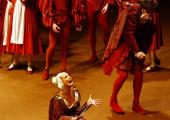
“Rudolf thought, what you wanted out of life you had to get straightaway, because if you thought about it too long, you might be dead,” said the ballerina Patricia Ruanne, the first Juliet in Rudolf Nureyev’s version of Romeo and Juliet. Coming a dozen years after Kenneth MacMillan’s landmark Royal Ballet version, Nureyev’s - for London Festival Ballet - is regrettably eclipsed, for what a powerful piece of theatre it is, and this autumn the chance to see both versions side by side has underscored that even if Nureyev was not the greatest choreographer, this was a story about individuals swamped in politics - something he knew about, from experience.

Those teenage lovers Romeo and Juliet will be dying nightly on a stage near you in various guises for much of the autumn - not as Shakespeare’s play, but as ballets and operas based on it. Next week both Birmingham Royal Ballet and English National Ballet field two of the more famous versions on their autumn tours, while at the end of the month the Royal Opera stages a rare revival of Gounod’s opera.
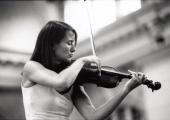
This season's LSO artist-in-focus, violinist Viktoria Mullova, is an incorrigible off-roader. The rougher the terrain the better. Early, modern, rock, folk: she'll absorb their shocks, vault their bumps, relish their pitfalls and come out without so much as a scratch. So Mullova's opening concert last night was intriguing. Prokofiev's Second Violin Concerto isn't exactly smooth terrain, but its roughness is pretty suburban.
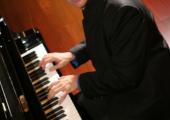
Two years after its first festive spree of 100 events, Kings Place has become the most congenial of all London's concert-hall zones in which to hang loose. On Friday afternoon I could have trotted happily between Russian piano classics, youth jazz and storytellers. I stayed with pianist Mikhail Rudy and cellist Alexander Ivashkin because I was intrigued to know how Rudy's stamina would hold out from a monument of the Russian repertoire in the first concert to a punishing transcription in the third.
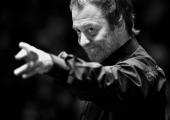
On paper it was a perfect Monday night programme – Scriabin’s extravagant sprawl of a First Symphony and Stravinsky’s The Firebird in its roomy original ballet score. A pairing of youthful 20th-century Russians conducted by the 21st-century Russian. Barely recovered from Sunday’s sensuous binge of Mussorgsky, Shostakovich and Prokofiev, Gergiev and the LSO promised some welcome hair of the dog. Yet by the time the inevitable Proms standing ovation shifted to its feet something was still lacking; mellow we certainly were. Intoxicated? Not even close.
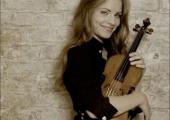
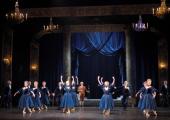
English National Ballet turns 60 next week, and nowadays just enduring has to be enough. Smelling of greasepaint and tour buses from the very first, it also smelled of stars - Alicia Markova and Anton Dolin who began it, Rudolf Nureyev and Natalia Makarova who created splendid productions for it, and extraordinary late-career performances by Lynn Seymour. Stars have been born in ENB too, even if they burst into full gleam elsewhere - Trinidad Sevillano, Tamara Rojo, and more than likely the young lad who is ENB’s latest find, Vadim Muntagirov, who danced last night in Cinderella.

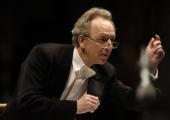
They're marketing it as a mini Prokofiev-Tchaikovsky festival, but there's no getting round the fact that each of the three concerts in the series is bog-standard programming. Not that it really matters when the Philharmonia has hooked Yuri Temirkanov to conduct the big three Tchaikovsky symphonies (4, 5 and 6). With the charismatic Yevgeny Svetlanov dead some years now, and Gennadi Rozhdestvensky rarely on the scene these days, Temirkanov is the last of the older-generation Russian master conductors currently to be seen in the UK. And, yes, no one except perhaps his one-time protégé Valery Gergiev among the next generation has such authority in inspiring the players to feats of full-blooded Tchaikovskyan suppleness.